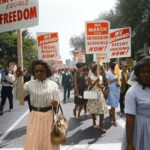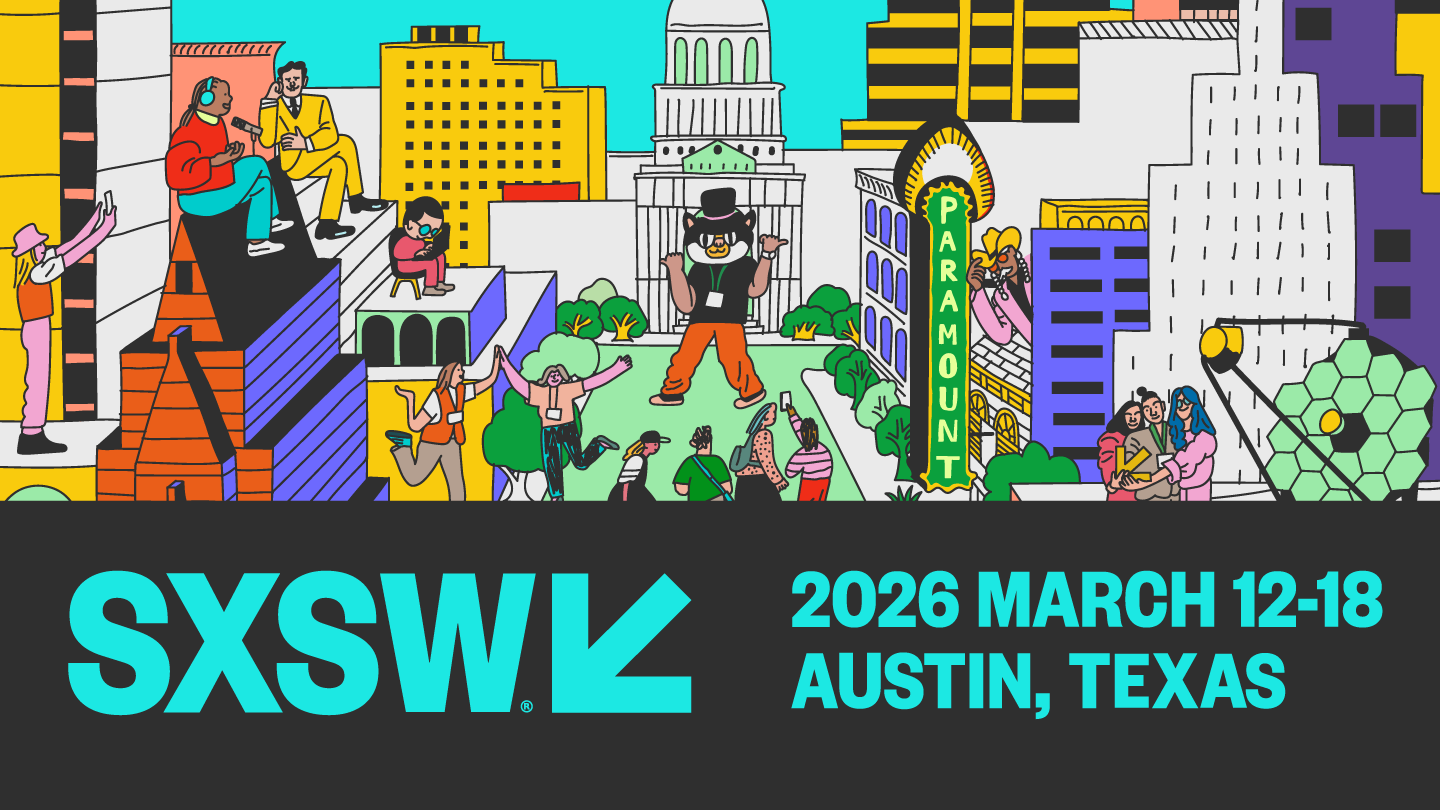Earlier this week the State Department held its Human Rights Defender Award Ceremony, honoring eight recipients from across the world. Latinitas Magazine had the incredible privilege of speaking with Deputy Assistant Secretary Enrique Roig about those who were honored and the impressive works the Beaureu of Democracy, Human Rights, and Labor are doing to aid in the fight for fundamental freedoms across the globe. Please enjoy my conversation with Deputy Assistant Secretary Roig.
So, my first question is regarding today’s award ceremony. The State Department recently announced the winners of the Human Rights Defender Award. Eight incredible recipients from all over the globe were honored for their amazing works defending human rights and fundamental freedoms worldwide. These heroes are fighting for the rights of indigenous people, the LGBTQ+, and migrant workers. That list goes on. Can you tell us more about the purpose of the Human Rights Defender Award and its significance on a global scale?
Sure, Camila. So I think you characterized it well in terms of the profile of individuals that received awards today. It’s an opportunity, obviously, on behalf of the State Department and this administration to highlight the important work that human rights activists are doing around the world. And so we had a pretty interesting cross-section of individuals from Burma to Azerbaijan, to Colombia, to Bolivia, Kuwait.
I think each of them really embodies the important work that many of these activists are doing on a day-to-day basis. Whether it’s to protect the rights of migrant workers or the lgbtq+ community or working on restorative justice issues or just defending human rights in various contexts. And so it’s an important recognition as you know, that we do annually. And again, I think given the state of the world these days, it’s a nice moment to take a little bit of a break and have sort of a positive engagement with these individuals.
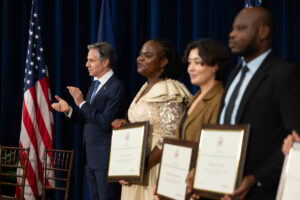
Yes, for sure. The recipients this year include incredible figures like an Indigenous people’s rights activist from Colombia and a civic leader from Bolivia. Can you share more about their contribution specifically and what inspired their recognition?
Yes, so in the case of Colombia, Juana Ruiz is an Afro-Colombian social leader, human rights defender, teacher, and artist. And she coordinates the organization, it’s called Weaving Dreams and Flavors of Mahan. Mahan is a community in Northern Bolivar, which unfortunately was the site of [an] unfortunate massacre that took place by para militaries there in the early two thousands.
And so Juana has been working with survivors of that massacre to kind of process her trauma. She’s done that essentially through forming quilting groups. As part of that work, [she] also was able to display those quilts in Bogota’s National Museum. And then that work led to the creation of the Museum of Art and Memory of Mahan. She’s been a strong social activist leader on sort of restorative justice issues in Colombia. And so a real great example, particularly in a context like Colombia that’s been dealing with conflict for 50 years of somebody who’s had to in the trenches really defend human rights and be an activist for the restoration of those rights of victims.
Amparo Carvajal from Bolivia is the co-founder and president of the Permanent Human Rights Assembly of Bolivia. She’s great. She’s 85 years old and [as] much of a dynamo today as she’s ever been [Roig laughs] Under her supervision and leadership, her organization provides support and pro bono services to victims and survivors of human rights violations and their families. She’s been at it since 1976 when she started this volunteer organization to monitor and advocate for human rights. And so another great example of somebody who’s really dedicated her life to the cause of human rights.
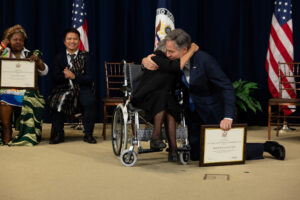
That’s amazing! On a personal level, as the Deputy Assistant Secretary for the Bureau of Democracy, Human Rights, and Labor, could you talk a bit about what motivated you to get involved with the government and what specifically your bureau does to aid human rights efforts?
Sure. So this Bureau, the Bureau for Democracy, Human Rights, and Labor, I would characterize as the main advocate on these issues within the State Department. We have many tools that we utilize to promote human rights and democracy and labor issues, right? We’ve got a pretty extensive portfolio of programs that we fund with civic activists, human rights defenders, [and] labor leaders around the world. In addition, we are responsible also for sanctions and visa restrictions as it relates to human rights violations. And additionally one of our main products is the annual human rights reports that we put out, which is congressionally mandated. So it’s essentially a way to document what’s happening in every country in the world when it comes to human rights issues as well. So that’s the focus of this bureau.
For me personally I’ve done a lot of work around the world on human rights issues. I’ve spent a big part of my career in Colombia, in particular in Latin America and Africa. And so I have run programs, supporting activists, providing training to them, and have spent a lot of time and personal contact with them and understanding their stories and trying to be supportive of their advocacy. I would say that that experience and that passion for the work is what brought me here to government to work in this bureau and support these issues.
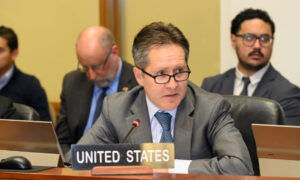
That’s incredible. As you know, I’m part of a fantastic nonprofit here in Austin that encourages Latinas to get into STEM at a young age. Because of this Latino community is always at the forefront of our minds. For Latino and Indigenous communities, particularly in Latin America, what are some of the most pressing human rights issues currently being addressed by the State Department?
There’s a host of different issues, right? I mean, obviously income equality is a big one. Development overall for communities that are often marginalized, definitely issues around land reform, particularly [in] places like Guatemala, Bolivia, for example. In Colombia, the Afro-Colombian communities have often been marginalized, and where often you will find lots of conflict taking place, whether it’s around illegal mining or the drug trade. And so oftentimes they are unfortunately on the front lines being victimized by armed actors in those contexts.
I would say a lot of our work is geared towards supporting their economic development, as well as protection monitoring of the human rights situation, and advocating for their own governments to do more to, to protect them as well, and land reform issues. We oftentimes will try and encourage more dialogue between these communities and the government as well as the private sector and the extractive industries, just so they can reach some consensus and dialogue agreement on sort of how best to go about supporting the extractive industries that touch on their community. So it’s a range of a lot of different issues, but I would say those are some of some of the main ones.
Thank you for highlighting them and especially our efforts. And lastly, ending on a more positive note–As Deputy Assistant Secretary, what has been the most rewarding part of your role in supporting human rights worldwide?
That’s a great question. I’ve now done, let’s see, 44 trips over the last three and a half years. It’s been to about 30 countries. So meeting with human rights defenders and activists in those countries, I would say has been the most rewarding thing for me. Just to be with them to hear their stories and to hear about the amazing work that they’re doing to advocate for their communities, the successes they’re having, also the challenges. But oftentimes also, being in a position where we can also help them, whether again, it’s through programs that we support or helping them advocate with their governments on their issues. So having that personal contact for me has been super rewarding and yeah, something that I truly have appreciated about the job.
That’s phenomenal! Thank you so much for talking with us today.




